Are you feeling uncertain about your grades and considering an appeal? Navigating the grade appeal process can be daunting, but understanding the steps can make it much easier. In this article, we'll break down the essential components of an effective appeal letter and provide insights on how to present your case clearly and persuasively. Ready to learn how to advocate for yourself? Read on for practical tips and a sample letter to guide you!

Clear subject line
A clear subject line for a student grade appeal process could be: "Grade Appeal Request for [Course Name] - [Your Full Name]". This concise subject line includes the necessary course information, ensuring it captures the recipient's attention and clearly indicates the purpose of the email. Including both the course name and student name aids in the efficient identification of the appeal needed for review.
Demonstrated understanding of grading criteria
Students engaging in the grade appeal process must effectively demonstrate their understanding of the grading criteria set forth by academic institutions. For instance, universities often use a grading rubric that outlines specific performance indicators, such as clarity of argument, depth of analysis, and adherence to assignment guidelines. In a typical case, a student might review the grading rubric for a written assignment in a Literature class at Harvard University, where grades are assigned based on a 100-point scale. The student might argue that their submission met the criteria for an "A" grade, which requires a score of 90 or above, by providing evidence of well-structured arguments and comprehensive analysis. Additionally, presenting feedback from peers or highlighting discrepancies in grading compared to similar submissions can strengthen the student's appeal. Familiarity with protocols established by the academic senate and an understanding of the review timeline are crucial for navigating this process effectively.
Specific evidence or examples
In the student grade appeal process, specific evidence and examples play a crucial role in supporting claims of grading discrepancies. Detailed records of assignments, such as graded essays from English 101, can highlight inconsistencies, especially if the provided feedback contradicts the final grade. For instance, a rubric indicating a score of 90% for a literature analysis might conflict with a final grade of C, necessitating clarification from the instructor. Attendance records from Fall Semester 2023 can also be pivotal; if a student attended 90% of classes yet received penalties for attendance, this data can substantiate the appeal. Additionally, testimonials from classmates or peer reviews can further reinforce the student's understanding and performance relative to course expectations. All these elements combined create a compelling narrative for the appeal committee to consider.
Respectful and professional tone
The student grade appeal process involves addressing academic concerns with the relevant administrative bodies at educational institutions. Students typically submit a formal appeal outlining grievances regarding grades, often referencing specific assignments or examinations. These appeals often require adherence to established deadlines, such as those set by the academic department or university policy, often 30 days following the release of grades. Essential components of a successful appeal include clearly articulated rationale, supporting documentation like graded assignments or exam materials, and acknowledgment of previous communications with the instructor. Each institution may have a designated committee, commonly referred to as the Academic Appeals Committee, responsible for reviewing these cases and making determinations based on institutional policy and fairness considerations.
Request for specific action or review
Students frequently encounter challenges in academic evaluations, prompting grade appeal processes within educational institutions. The process typically requires a formal request for a specific action, often initiated in response to perceived discrepancies in grading. A review of the specific course grade, typically assigned by a faculty member, may focus on factors such as assignment feedback, grading rubrics, and adherence to institutional policies outlined in student handbooks. Necessary documents might include a detailed appeal letter, previous assignments, and relevant correspondence with instructors. Each educational institution, such as a university or college, may have unique procedures and deadlines (e.g., 10 days from grade posting) that are crucial for students to understand and adhere to for a successful appeal outcome.
Letter Template For Student Grade Appeal Process Samples
Letter template of student grade appeal addressing grading rubric inconsistencies
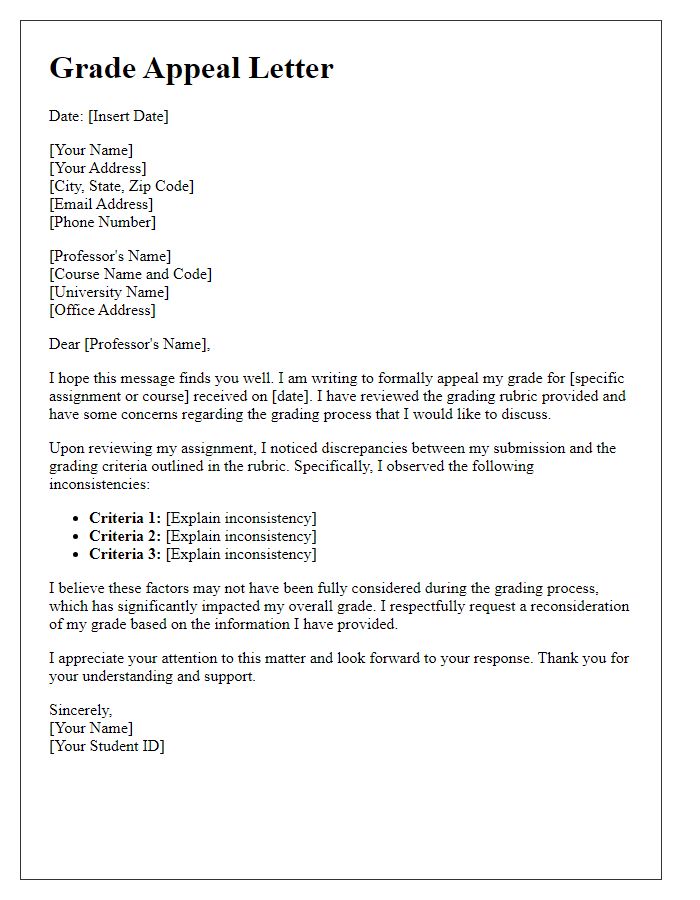
Letter template of student grade appeal focusing on extenuating circumstances
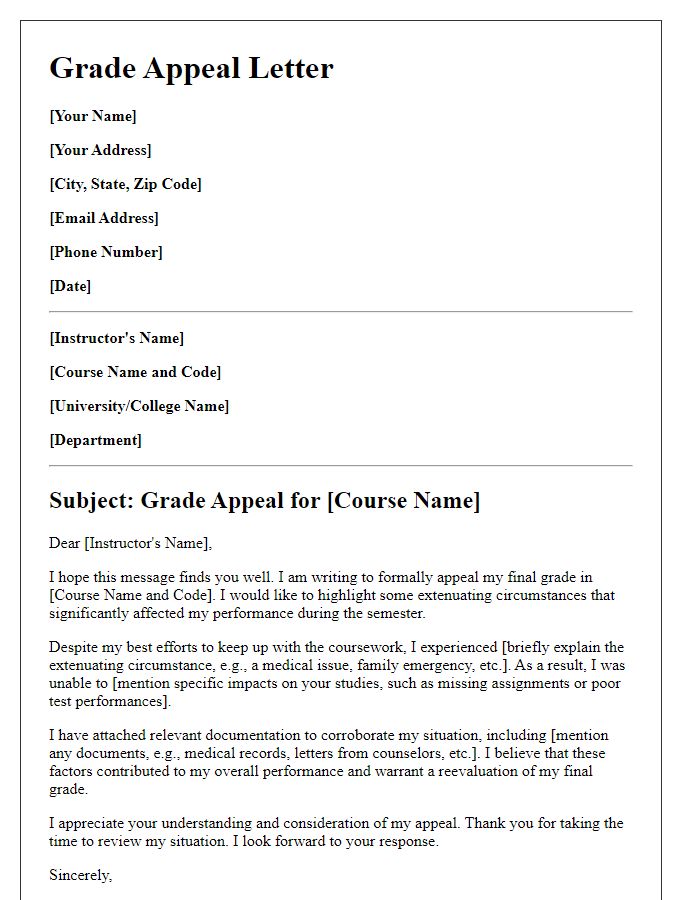
Letter template of student grade appeal regarding participation grade issues
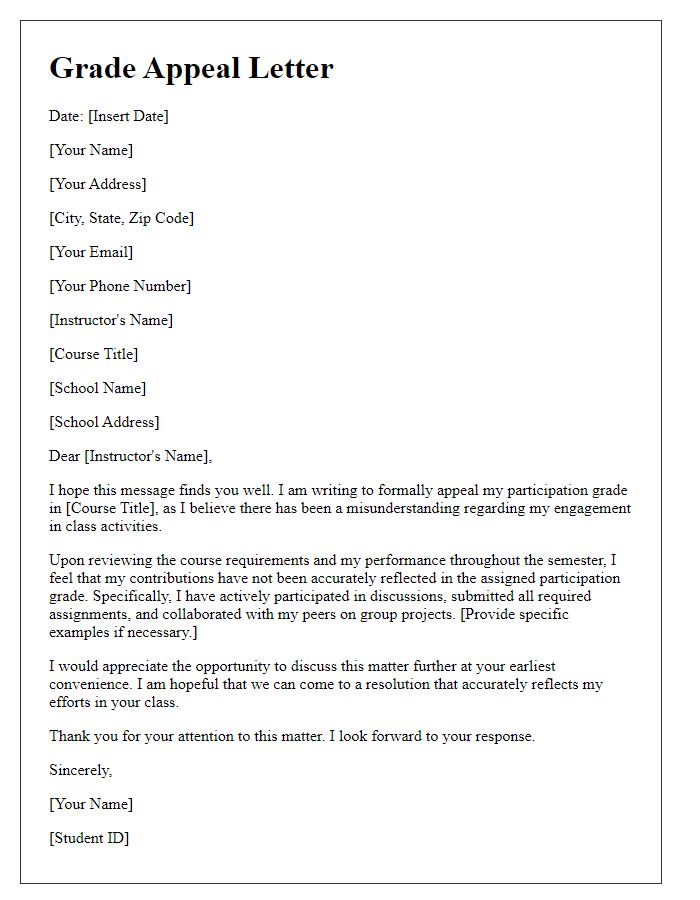
Letter template of student grade appeal concerning late submission penalties
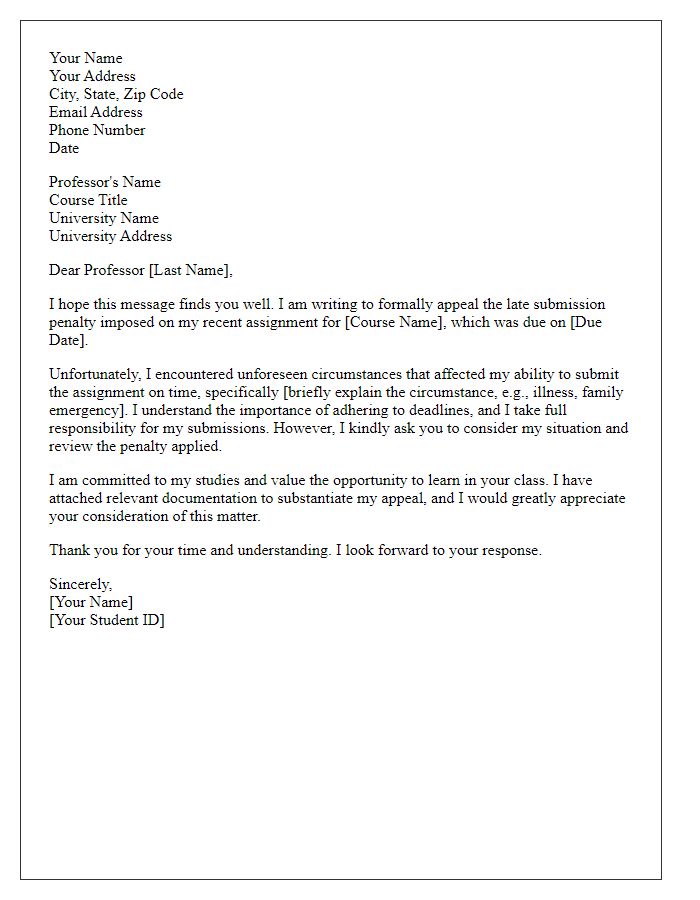
Letter template of student grade appeal highlighting miscommunication with instructor
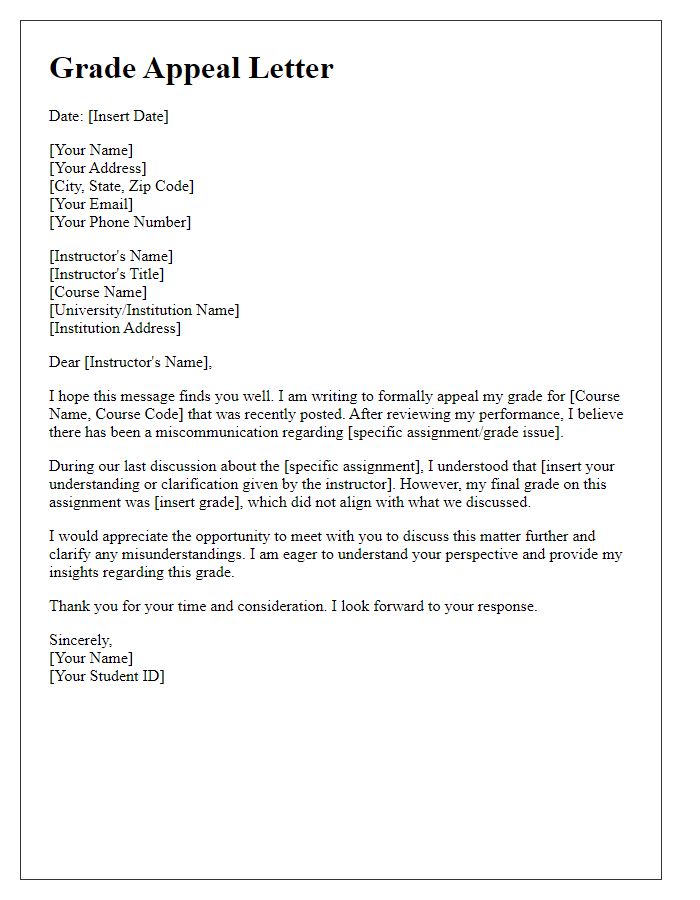
Letter template of student grade appeal referencing academic performance improvement
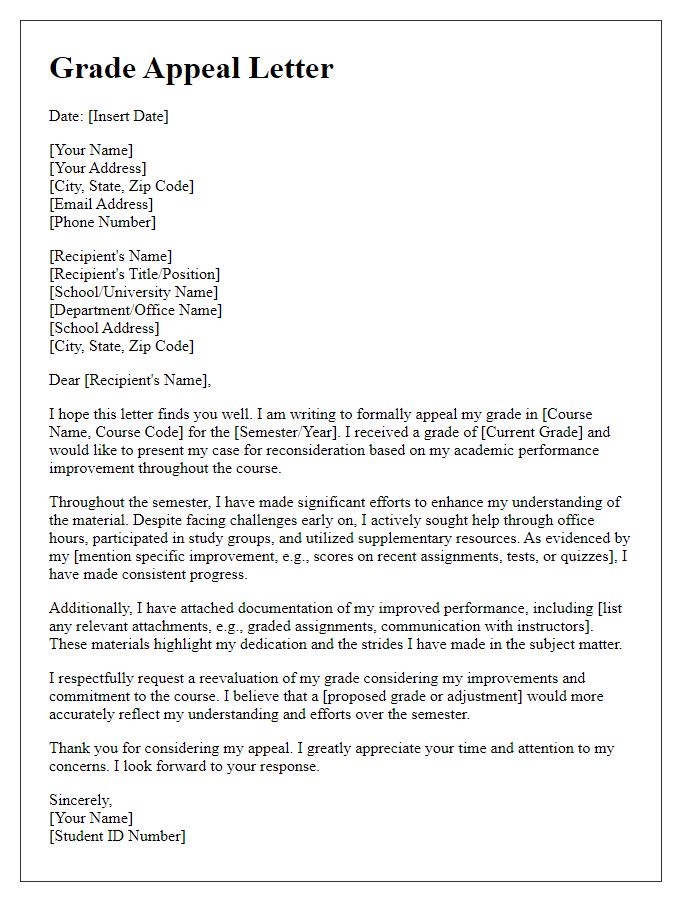

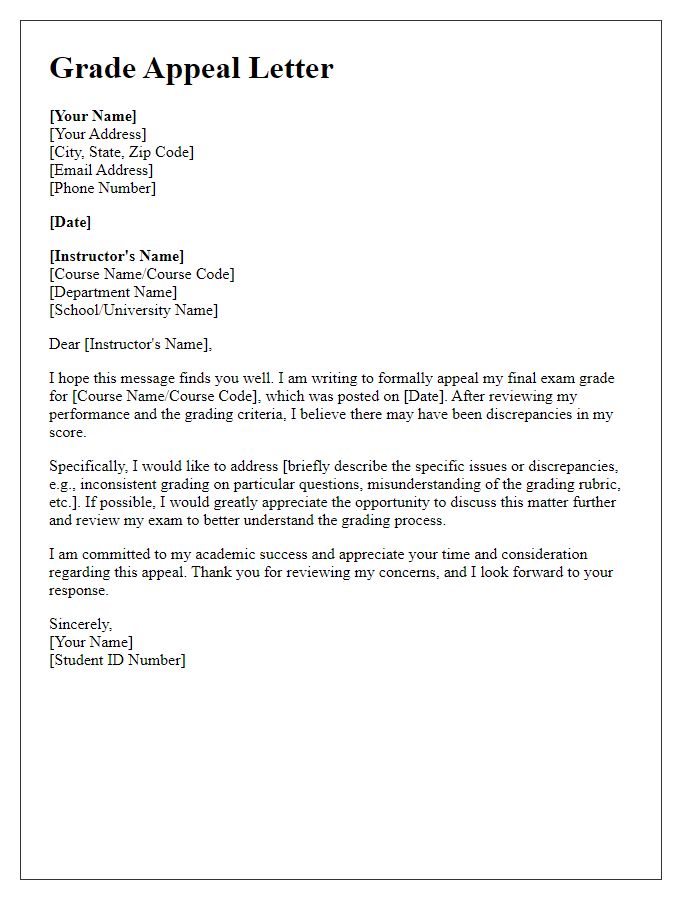
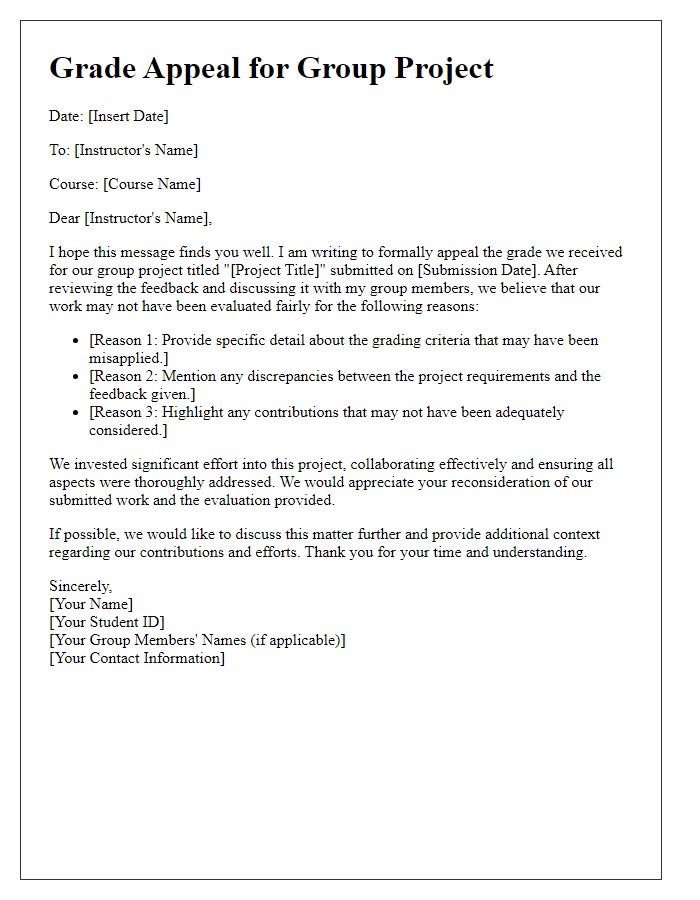
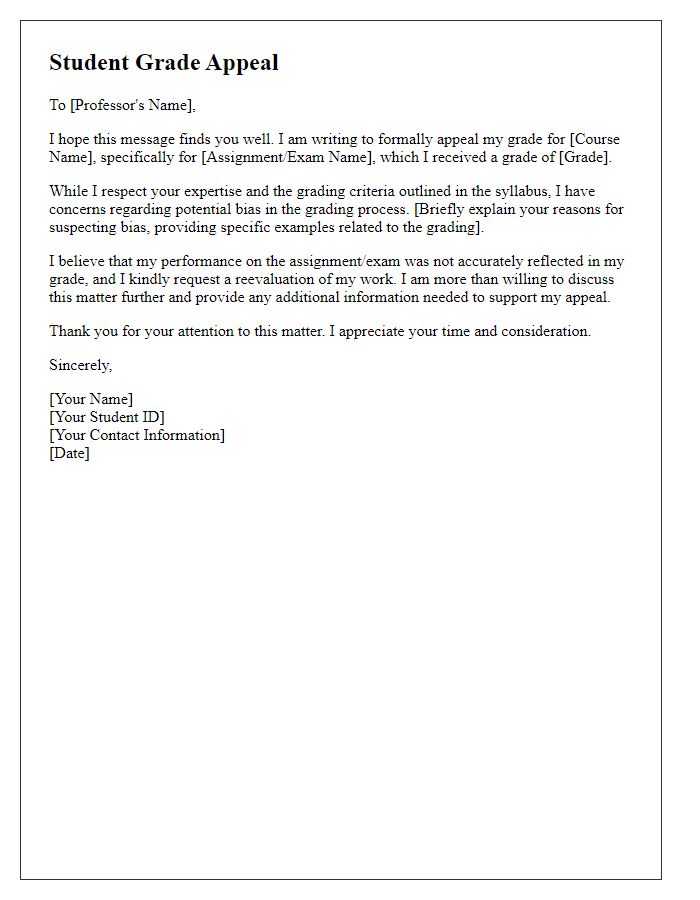
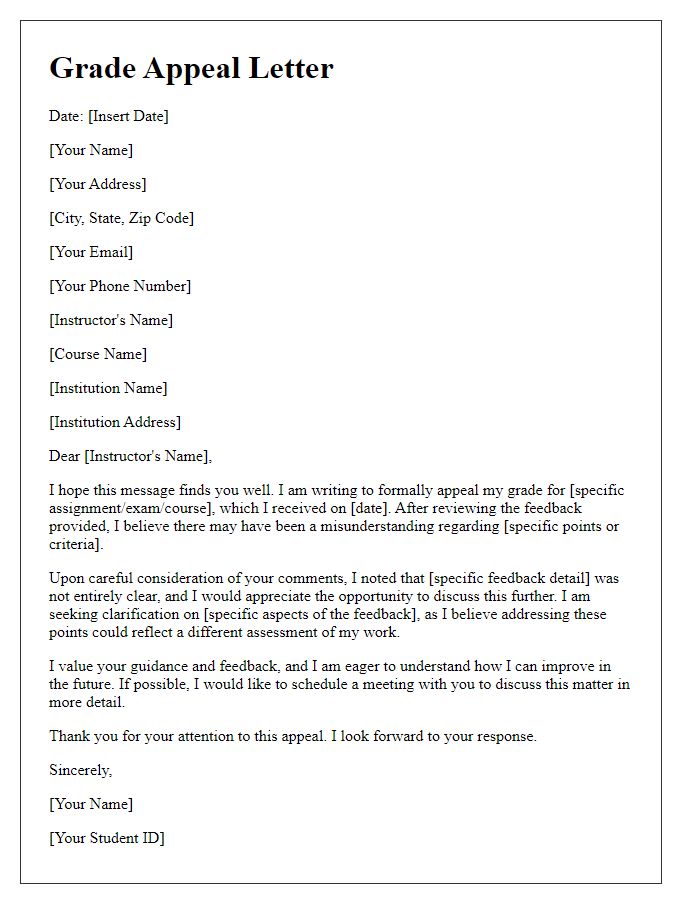


Comments